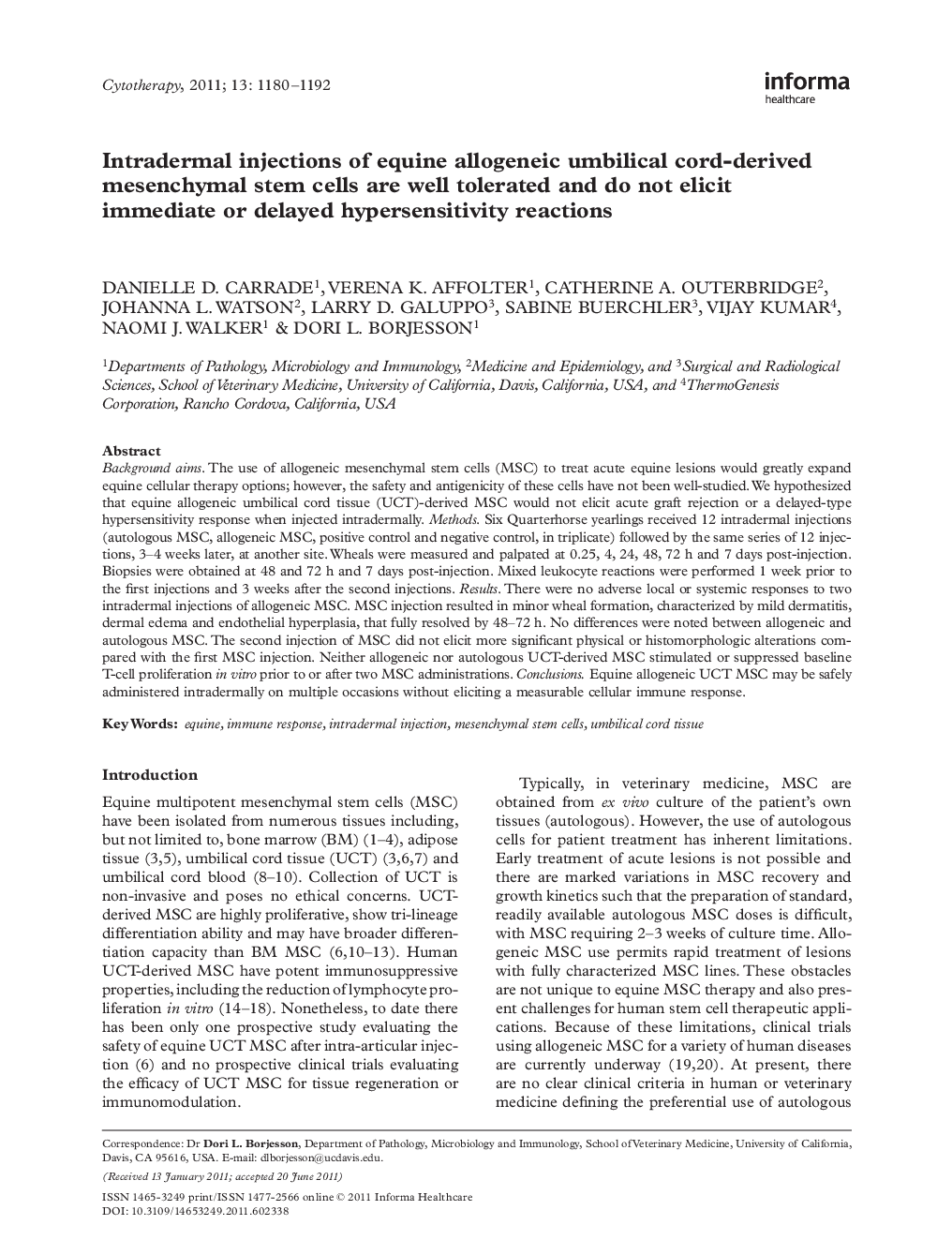| Article ID | Journal | Published Year | Pages | File Type |
|---|---|---|---|---|
| 2172009 | Cytotherapy | 2011 | 13 Pages |
Background aimsThe use of allogeneic mesenchymal stem cells (MSC) to treat acute equine lesions would greatly expand equine cellular therapy options; however, the safety and antigenicity of these cells have not been well-studied. We hypothesized that equine allogeneic umbilical cord tissue (UCT)-derived MSC would not elicit acute graft rejection or a delayed-type hypersensitivity response when injected intradermally.MethodsSix Quarterhorse yearlings received 12 intradermal injections (autologous MSC, allogeneic MSC, positive control and negative control, in triplicate) followed by the same series of 12 injections, 3–4 weeks later, at another site. Wheals were measured and palpated at 0.25, 4, 24, 48, 72 h and 7 days post-injection. Biopsies were obtained at 48 and 72 h and 7 days post-injection. Mixed leukocyte reactions were performed 1 week prior to the first injections and 3 weeks after the second injections.ResultsThere were no adverse local or systemic responses to two intradermal injections of allogeneic MSC. MSC injection resulted in minor wheal formation, characterized by mild dermatitis, dermal edema and endothelial hyperplasia, that fully resolved by 48–72 h. No differences were noted between allogeneic and autologous MSC. The second injection of MSC did not elicit more significant physical or histomorphologic alterations compared with the first MSC injection. Neither allogeneic nor autologous UCT-derived MSC stimulated or suppressed baseline T-cell proliferation in vitro prior to or after two MSC administrations.ConclusionsEquine allogeneic UCT MSC may be safely administered intradermally on multiple occasions without eliciting a measurable cellular immune response.
